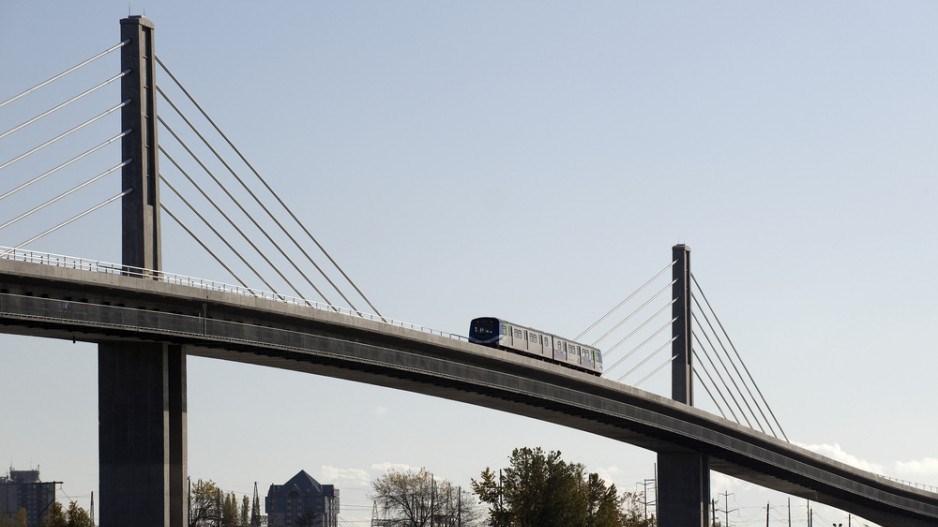The Canadian Federation of Independent Business has released more results from its ongoing online member poll and they show both fear and loathing of a proposed 0.5% regional sales tax to fund transit improvements.
Ninety-two per cent of respondents said they did not trust future governments to not raise the “congestion improvement tax” if it were put into place. CFIB members who participated in the online poll also thought the tax would be harmful to their business: 37% strongly agreed with that statement, while 32% somewhat agreed.
The CFIB says it represents 3,000 small businesses in B.C.; 319 of them participated in the online poll between February 10 and 18.
“Entrepreneurs are understandably concerned that once the TransLink tax is introduced, the revenues will either be wasted or won’t be enough, and the mayors would soon be back asking for more,” said CFIB spokesman Richard Truscott in a statement.
“Over the past decade, entrepreneurs have seen first-hand how municipal governments have continued to hike property taxes on business.”
Metro Vancouver residents will vote on the proposed sales tax increase between mid-March and May in a plebiscite. The provincial government will then decide whether or not to introduce legislation to put the tax increase into effect.
The province would be the only level of government that could decide whether to raise the tax, said Greg Moore, mayor of Port Coquitlam and a member of TransLink’s Mayors’ Council.
“The local mayors and TransLink have absolutely no ability to adjust the tax after it’s implemented,” Moore said. “At this point we see through this tax we could implement the full plan that we have out there. That’s going to take us 15, 20 years down the road.”
The Mayors’ Council $7.5 billion transportation plan calls for more bus service throughout the region, a new Patullo bridge, three lines of light rail in Surrey and a subway along a portion of Broadway in Vancouver. Metro Vancouver mayors and the province say more transit is needed to accommodate the one million extra people who are expected to move to the region by 2030.
The proposed tax would raise enough money to pay for local governments’ portion of capital costs to build new transit systems, as well as operating costs, Moore said.
In contrast to the CFIB's results, Elizabeth Model, CEO of the Downtown Surrey Business Improvement Association, said she had been hearing the opposite sentiment from her small business members. The Downtown Surrey BIA is part of a coalition of over 100 business groups, service and environmental organizations and unions who are campaigning for a yes vote.
“We have hard-working members in our organization. South of the Fraser, the feeling is that we’ve been left out in the cold for a number of years,” Model said. “The yes vote is very strong out here."
Other business groups in the Better Transportation and Transit Coalition include the Vancouver and Surrey Boards of Trade, the BC Chamber of Commerce and various business improvement associations across the region.
“I think everybody has a TransLink concern, but that’s not on the ballot … that’s for the provincial government to fix," Model said. "For the most part, the small businesses are saying to me, ‘Elizabeth, we just need some really good employees that can get to work.’”
According to the CFIB’s online poll, 60% of respondents believe local government’s share of the $7.5 billion plan (expected to be about a third of that amount) could be found by cutting back on existing municipal spending. The province and federal government are also expected to fund their share of the plan.
TransLink has been in a funding deadlock for several years as the province and local governents have both balked at using existing funding mechanisms such as a vehicle levy and property tax increases. The transit authority has cut service as a result.
The mayors’ plan also includes the introduction of mobility pricing (more extensive tolling of roads and bridges, often by distance) in five or six years, Moore said. Mobility pricing could replace other taxes that currently go to fund TransLink, such as the existing gas tax.
@jenstden




